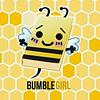Take a photo of a barcode or cover
"Die Geschichte der Bienen" verknüpft die Schicksale dreier Familien, die zu drei unterschiedlichen Zeiten auf drei verschiedenen Kontinenten heimisch sind, und deren Leben durch die bestäubenden Insekten, bzw. deren Abwesenheit, bestimmt wird. Landarbeiterin Tao aus China, Naturwissenschaftler William aus England und der amerikanische Bienenzüchter George leben zwar in verschiedenen Jahrhunderten, doch neben den Bienen gibt es noch einen weiteren Aspekt, der sie verbindet, denn alle drei sorgen sich um ihre Söhne und deren Zukunft.
Das Sterben der Bienen ist auch in unserer Welt ein aktuelles Thema, was sicherlich zu dem Bestsellerstatus dieses Buches beigetragen hat. Ich persönlich konnte der Handlung jedoch nicht sehr viel abgewinnen, da sie zum Großteil bloß vor sich hin plätschert. Aufgrund der Ernsthaftigkeit der Thematik hätte sie durchaus dramatischer dargestellt werden können. Zudem erschien mir der in der Zukunft liegenden Erzählstrang um Tao und ihre Familie unplausibel. Hier habe ich mich oft gefragt, warum die Charaktere handeln, wie sie handeln, und ganz besonders das Verhalten der Regierung hat ein großes Fragezeichen hinterlassen. Dabei hatten alle drei Erzählperspektiven Potential für mehr!
Vielleicht hatte ich aber auch zu hohe Erwartungen, da ich tatsächlich "Die Geschichte des Wassers" und "Die letzten Ihrer Art" zuvor gelesen habe und Letzteres zu meinen Lieblingsbüchern zähle.
Das Sterben der Bienen ist auch in unserer Welt ein aktuelles Thema, was sicherlich zu dem Bestsellerstatus dieses Buches beigetragen hat. Ich persönlich konnte der Handlung jedoch nicht sehr viel abgewinnen, da sie zum Großteil bloß vor sich hin plätschert. Aufgrund der Ernsthaftigkeit der Thematik hätte sie durchaus dramatischer dargestellt werden können. Zudem erschien mir der in der Zukunft liegenden Erzählstrang um Tao und ihre Familie unplausibel. Hier habe ich mich oft gefragt, warum die Charaktere handeln, wie sie handeln, und ganz besonders das Verhalten der Regierung hat ein großes Fragezeichen hinterlassen. Dabei hatten alle drei Erzählperspektiven Potential für mehr!
Vielleicht hatte ich aber auch zu hohe Erwartungen, da ich tatsächlich "Die Geschichte des Wassers" und "Die letzten Ihrer Art" zuvor gelesen habe und Letzteres zu meinen Lieblingsbüchern zähle.
informative
reflective
sad
medium-paced
Plot or Character Driven:
Character
Strong character development:
Complicated
Loveable characters:
Complicated
Diverse cast of characters:
Yes
Flaws of characters a main focus:
Yes
challenging
dark
informative
tense
fast-paced
Plot or Character Driven:
A mix
Strong character development:
Yes
Loveable characters:
Yes
Diverse cast of characters:
Yes
Flaws of characters a main focus:
Complicated
Jeg har blandede følelser for denne boken. Den er bra skrevet og historien om biene er viktig og interessant for ikke å snakke om aktuell. Problemet mitt er bare at det skjer så innmari lite, og det lille som skjer er så forutsigbart at det nesten gjør vondt. Å sitte å vente på at noe skal skje er kjedelig. Spesielt når det tar 455 sider. Men skillene mellom karakterene er så fine, og boken er så rolig og fin at den føles nesten litt romantisk. Jeg kan ikke si for sikkert hva jeg mener om boken, det er et elsk/hat forhold så jeg legger den midt på treet.
challenging
emotional
reflective
sad
tense
slow-paced
Plot or Character Driven:
Plot
Strong character development:
Complicated
Loveable characters:
Complicated
Diverse cast of characters:
Complicated
Flaws of characters a main focus:
No
challenging
informative
reflective
fast-paced
Plot or Character Driven:
A mix
Strong character development:
Yes
Loveable characters:
Complicated
Diverse cast of characters:
Yes
Flaws of characters a main focus:
Complicated
3and a half stars.
There are 3 stories in this book. Tao is a woman in China in 2098, a world without bees requires hand pollination to eat. George is a beekeeper in the US in 2007 and William is a scientist in England in 1851.
The connections between the stories beyond bees themselves are not revealed until close to the end. It’s a slow read, the writing is detailed yet a lot of the detail isn’t really relevant , I felt. The main characters are mostly difficult people, the way the act towards their children and other close relationships in particular make them unsympathetic a lot of the time. But it’s not a bad book, the theme of our environmental choices (pesticides etc) and the effect on bees and their essential role in food production is an important one.
There are 3 stories in this book. Tao is a woman in China in 2098, a world without bees requires hand pollination to eat. George is a beekeeper in the US in 2007 and William is a scientist in England in 1851.
The connections between the stories beyond bees themselves are not revealed until close to the end. It’s a slow read, the writing is detailed yet a lot of the detail isn’t really relevant , I felt. The main characters are mostly difficult people, the way the act towards their children and other close relationships in particular make them unsympathetic a lot of the time. But it’s not a bad book, the theme of our environmental choices (pesticides etc) and the effect on bees and their essential role in food production is an important one.
Despite my initial apprehension as I read the first few pages of this book, I was in love with it by the end. I love Lunde's decision to tie the three characters together despite them living generations apart. I personally would have liked to learn more about Charlotte who is such a vital character in William's chapters. I know that he was living during the 1850s but all of the time wasted on Edmund was just annoying. It would have been nice to learn more about how Charlotte established her life in America after leaving the U.K.
challenging
emotional
reflective
slow-paced
Plot or Character Driven:
A mix
Strong character development:
No
Loveable characters:
Complicated
Diverse cast of characters:
Yes
Flaws of characters a main focus:
Yes





